
Newsletter Subscribe
Enter your email address below and subscribe to our newsletter

Enter your email address below and subscribe to our newsletter
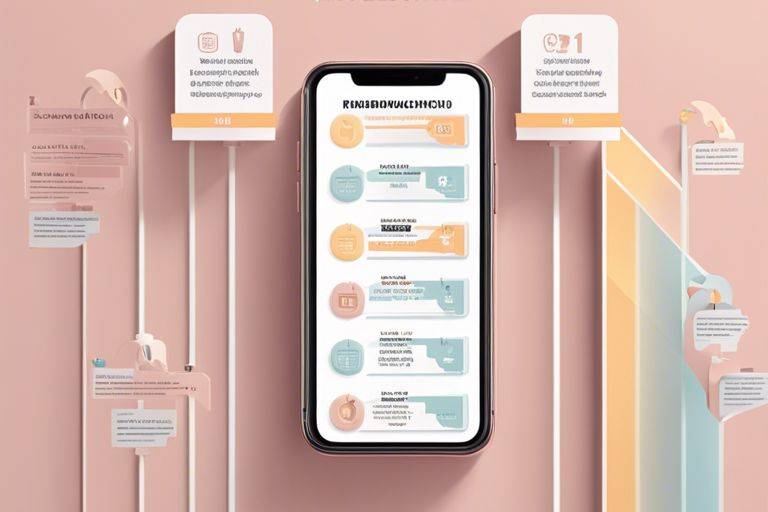
Reward System for Task Completion! You work hard to complete tasks and achieve your goals. But do you sometimes find yourself lacking the motivation to stay on track? Implementing a reward system can be the key to boosting your motivation and keeping you focused on the tasks at hand. By offering yourself rewards for completing specific objectives, you can create a powerful incentive for yourself that will drive you to succeed.
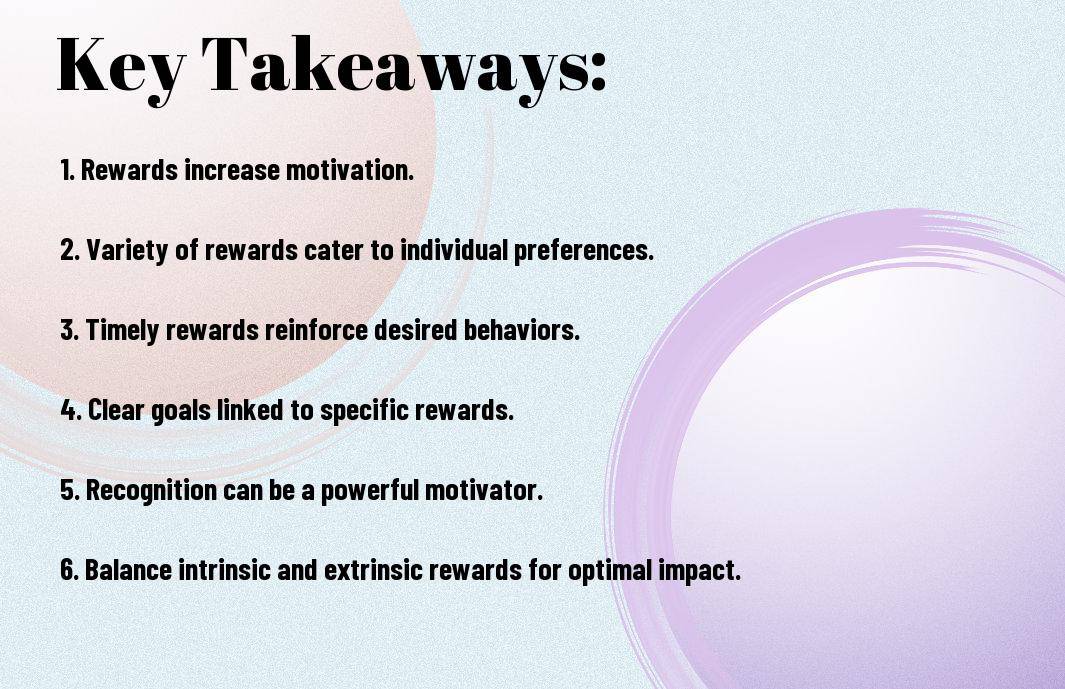
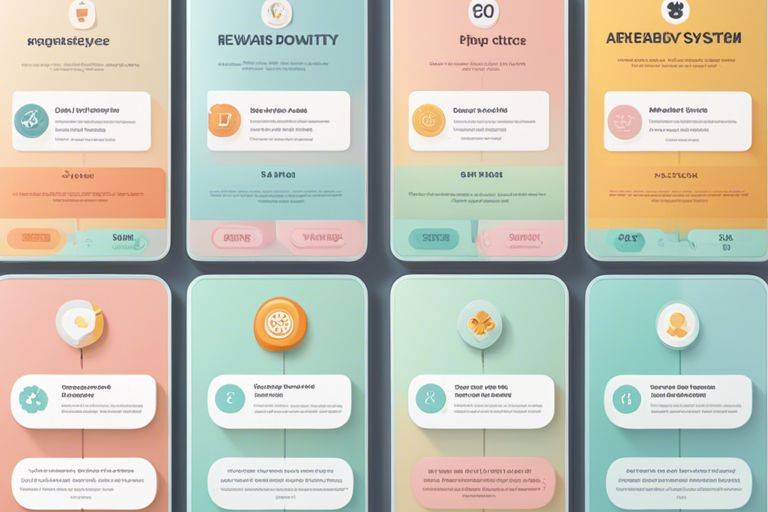
Some of the fundamental concepts that underpin the psychology of rewards are intrinsic and extrinsic motivation. Intrinsic motivation refers to the internal drive that compels individuals to engage in activities simply because they find them personally rewarding. On the other hand, extrinsic motivation involves completing tasks or activities to earn rewards or avoid punishment.
To better understand the psychology of rewards, it is necessary to explore the role of dopamine in reward-motivated behavior. Dopamine is a neurotransmitter that plays a crucial role in the brain’s reward system. It is released in response to pleasurable experiences and reinforces certain behaviors by creating a sense of reward and pleasure.
Another critical aspect to consider is that dopamine can drive individuals to seek out rewards and repeat behaviors that lead to positive outcomes. This neurotransmitter not only enhances motivation but also plays a significant role in learning and decision-making processes.
Not all reward systems are created equal. Designing an effective reward system requires careful consideration of various factors to ensure it enhances motivation and drives task completion.
Any reward system should start with setting clear goals and objectives. Employees need to understand what is expected of them and how their performance will be measured. This clarity helps in aligning individual efforts with the overall objectives of the organization. When goals are specific, measurable, achievable, relevant, and time-bound (SMART), employees are more likely to stay motivated and focused on achieving the desired outcomes.
Effective reward systems offer a variety of rewards to cater to the diverse preferences of individuals. Rewards can be tangible, such as bonuses, gifts, or extra time off, or intangible, such as public recognition, praise, or opportunities for growth and development. The type of reward chosen can have a significant impact on its effectiveness. Different individuals are motivated by different types of rewards, so it is crucial to tailor the rewards to the preferences of the recipients.
| Rewards | Impact |
| Monetary Incentives | Can provide a short-term boost in motivation but may not lead to long-term engagement. |
| Recognition and Appreciation | Helps in building a positive organizational culture and fostering loyalty among employees. |
| Opportunities for Advancement | Motivates employees to strive for excellence and invest in their personal growth. |
| Flexible Work Arrangements | Improves work-life balance and boosts employee satisfaction and productivity. |
| Training and Development Programs | Investing in employees’ skills and knowledge can lead to improved performance and retention. |
Effective reward systems offer a variety of rewards to cater to the diverse preferences of individuals. Rewards can be tangible, such as bonuses, gifts, or extra time off, or intangible, such as public recognition, praise, or opportunities for growth and development. The type of reward chosen can have a significant impact on its effectiveness. Different individuals are motivated by different types of rewards, so it is crucial to tailor the rewards to the preferences of the recipients.
| Rewards | Impact |
| Monetary Incentives | Can provide a short-term boost in motivation but may not lead to long-term engagement. |
| Recognition and Appreciation | Helps in building a positive organizational culture and fostering loyalty among employees. |
| Opportunities for Advancement | Motivates employees to strive for excellence and invest in their personal growth. |
| Flexible Work Arrangements | Improves work-life balance and boosts employee satisfaction and productivity. |
| Training and Development Programs | Investing in employees’ skills and knowledge can lead to improved performance and retention. |
With the competitive nature of the modern workplace, organizations are constantly looking for ways to enhance employee motivation and productivity. Implementing a well-structured reward system can be a powerful tool in achieving these goals. Rewards such as bonuses, promotions, and recognition can help reinforce desirable behaviors and boost employee engagement. By recognizing and valuing the efforts of employees, organizations can create a positive work culture and improve overall performance.
With the increasing emphasis on personalized learning and student engagement, many educational institutions are turning to reward systems to enhance motivation among students. Rewards such as certificates, praise, and privileges can encourage students to excel academically and behaviorally. By incorporating rewards into the learning process, educators can create a more dynamic and motivating environment that encourages students to strive for success.
Additionally, educational reward systems can be tailored to meet the individual needs of students, providing targeted incentives for specific goals or achievements. By leveraging rewards effectively, educators can inspire students to develop a growth mindset and take ownership of their learning journey.
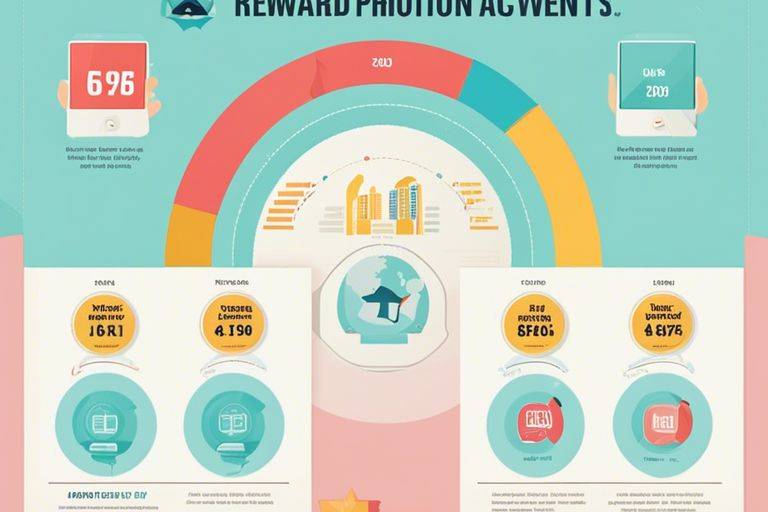
After implementing a reward system, it is crucial to consider the potential risks and drawbacks that may arise. One major concern is the possibility of fostering a ‘reward-dependent’ mindset among individuals, where the sole motivation for completing tasks comes from the expectation of a reward. This can lead to a decrease in intrinsic motivation, as individuals may no longer find joy in completing tasks for the sake of personal satisfaction or growth.
On top of that, there is a risk of inequality and unfairness in a reward system, where certain individuals may receive preferential treatment or better rewards based on subjective criteria. This can lead to resentment and demotivation among those who feel they are not being equally recognized or rewarded for their efforts.
Risks must be taken into consideration when designing a reward system to ensure a balance between fairness and effectiveness. It is important to establish clear and transparent criteria for rewards, ensuring that they are based on objective measures such as performance metrics or achievements. Additionally, regular assessments and adjustments to the reward system can help address any disparities or inconsistencies that may arise.
To strike a balance between fairness and effectiveness, organizations can also consider implementing a tiered reward system that offers different levels of rewards based on varying degrees of achievement. This can help motivate individuals to strive towards higher goals while still maintaining a sense of fairness and inclusivity within the organization.
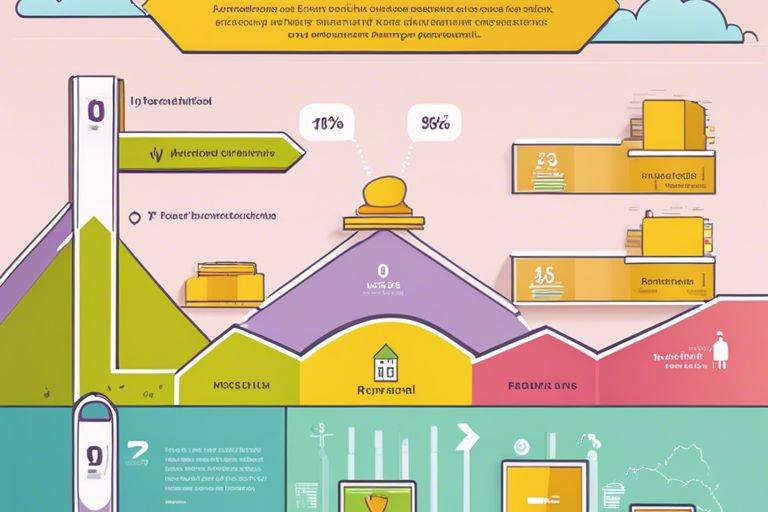
Technological advancements have revolutionized the way rewards are implemented in the workplace to enhance motivation and productivity. Digital rewards and gamification are two key strategies that companies are using to engage and incentivize employees. By incorporating elements like badges, leaderboards, and points systems into task completion, organizations create a more interactive and enjoyable work environment.
Advances in software and tools have made it easier for companies to track and deliver rewards to their employees efficiently. These tools streamline the reward distribution process, making it more transparent and accessible for both employees and management. For instance, some platforms offer customizable reward options that allow employees to choose rewards that are most meaningful to them, increasing the personalization and impact of the rewards program.
One key aspect of measuring the success of reward systems is through the use of both quantitative and qualitative metrics. Quantitative metrics can include data points such as task completion rates, time taken to complete tasks, and overall productivity levels. On the other hand, qualitative metrics involve getting feedback from employees on how the reward system has impacted their motivation, engagement, and overall satisfaction in their work.
One vital component of a successful reward system is the implementation of continuous improvement strategies and feedback loops. Reward systems need to adapt and evolve based on the changing needs and preferences of employees. By regularly collecting feedback and analyzing the effectiveness of the rewards, organizations can ensure that the system remains relevant and impactful.
Reward systems can benefit significantly from incorporating elements of continuous improvement and feedback loops. This approach allows organizations to fine-tune the rewards offered, address any issues or concerns that arise, and ultimately create a more engaging and motivational work environment for their employees.
Feedback plays a crucial role in the success of reward systems. It provides insights into what aspects of the system are working well and where improvements are needed. Organizations that actively seek and act on feedback are better positioned to create a reward system that effectively enhances motivation and drives performance.
With this in mind, it is evident that implementing a reward system can have a significant impact on enhancing motivation for task completion. The findings suggest that frequent rewards not only encourage better performance but also increase motivation levels, leading to improved productivity in the workplace. According to New Research Suggests Frequent Rewards Can Improve Motivation Performance at Work, a well-designed reward system can create a positive work environment that fosters employee engagement and satisfaction.
A: A reward system is a method of enhancing motivation by providing incentives or rewards for completing tasks or achieving goals.
A: A reward system enhances motivation by offering positive reinforcements that encourage individuals to work towards their goals and feel a sense of accomplishment.
A: Using a reward system can increase productivity, improve performance, boost morale, and create a positive work environment.
A: Examples of rewards include monetary bonuses, gift cards, extra time off, recognition awards, and opportunities for career advancement.
A: A reward system can be implemented effectively by setting clear goals, communicating expectations, linking rewards to performance, and consistently recognizing and rewarding achievements.
A: Potential challenges of using a reward system include the risk of creating a sense of entitlement, fostering competition instead of collaboration, and diminishing intrinsic motivation.
A: A reward system can be tailored to individual preferences and needs by offering a variety of reward options, gathering feedback from participants, and adjusting the system based on suggestions and preferences.
Visualization Techniques – Methods to Enhance Motivation and Clarity
Mastering How to Think Like Elon Musk: Inside the Mind of a Visionary Genius
Eat That Frog – Brian Tracy’s Approach to Tackling the Most Challenging Task First
Unlocking the Zeigarnik Effect: How Bluma Zeigarnik’s Open Tasks Can Skyrocket Your Motivation